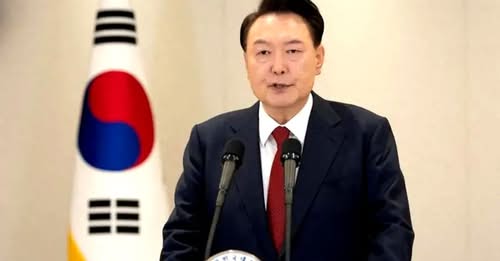Kathmandu. A Seoul court has issued an arrest warrant for impeached and suspended South Korean President Yoon Suk-yul. The BBC reported that he attempted to impose martial law on December 3. The arrest warrant was issued for the same charge.
He is being investigated on charges including treason. During that time, he has been summoned by the court for questioning three times. But he defied them and did not appear in court, prompting the arrest warrant.
Investigators had demanded an arrest warrant for Yoon on Sunday night on charges of rebellion and abuse of power. His lawyer called the action “illegal.” South Korea has been plunged into a political crisis after both Yoon and the acting president who succeeded him were impeached by parliament.
If he is arrested, he would become the first South Korean president to be arrested while in office. He was briefly declared martial law in the first week of December, sparking protests against him and later impeachment.
Investigators have until January 6 to execute the arrest warrant, and they can request an extension. It is uncertain whether investigators will be able to execute the warrant or whether they will be prevented from doing so by protests by his bodyguards and supporters.
The presidential security service has previously blocked investigators from entering and searching the presidential compound and Yoon’s private residence, even with court permission.
South Korean authorities have previously abandoned arrest attempts against top leaders after their aides and supporters obstructed them. Yoon’s legal team told investigators on Monday that they had no authority to arrest him. They said declaring martial law was within the president’s constitutional rights.
Yoon had previously defended his decision to impose martial law, saying he would “fight to the end.”
Han Deok-soo, who became acting president after his impeachment, has also been impeached. The same action was taken against the acting president less than two weeks after Yeol was impeached.
Han was supposed to lead the country during a political transition. But opposition lawmakers said he had to be impeached, accusing him of refusing to end the impeachment process against Yeol.
The impeachment vote in parliament on Friday was chaotic. Lawmakers from Yeol and Han’s ruling People’s Power Party protested against the impeachment motion by the speaker.
Lawmakers from the ruling party chanted “illegal” during the vote in favor of impeachment. They also called the move an “abuse of power.” Lawmakers from the ruling party had called for the speaker’s resignation. Most of them boycotted the vote on the impeachment motion.


Comments are closed.